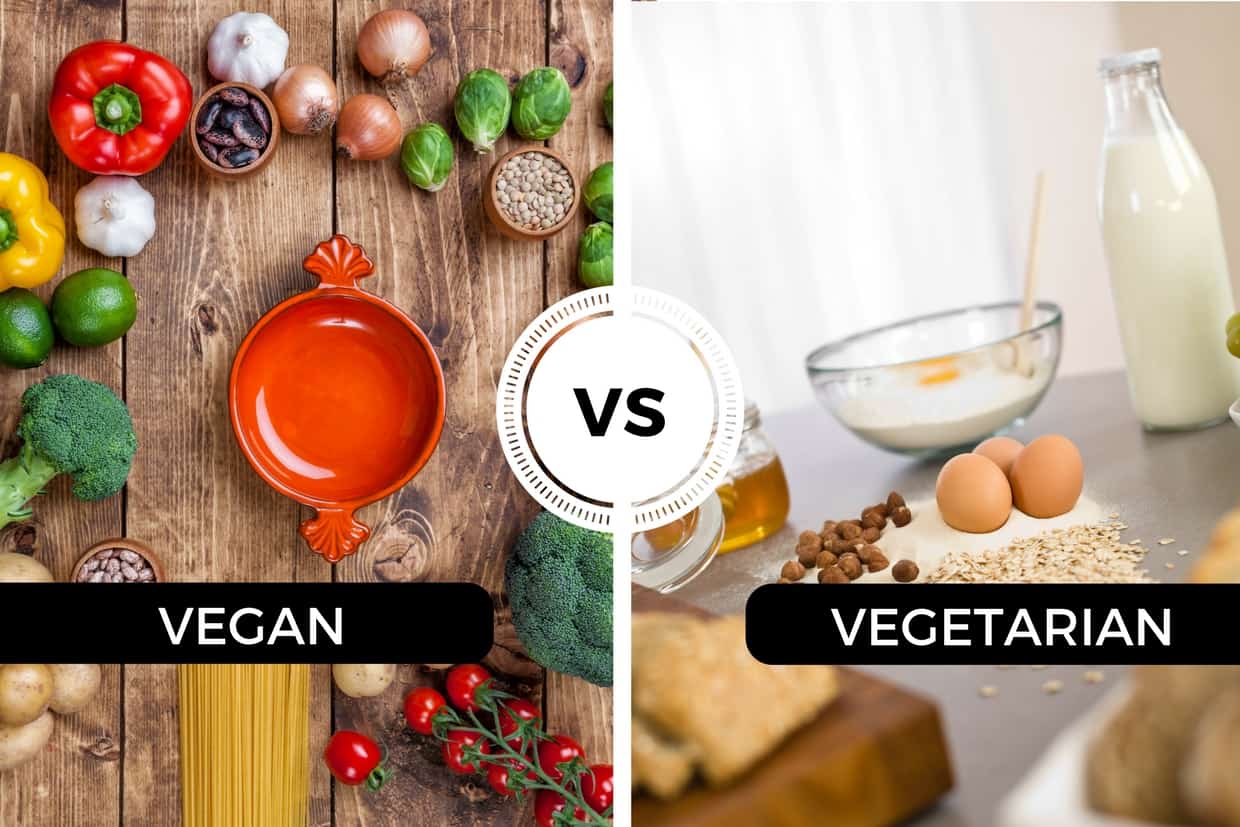Истакнути
- Преузми линк
- X
- Имејл адреса
- Друге апликације

In the evolving world of dietary choices, "vegetarian" and "vegan" are two terms often used interchangeably, but they have distinct meanings and implications. Understanding these differences is crucial for making informed dietary choices and reaping the associated health benefits. Let's delve into what sets these two diets apart and how each can fit into a healthy lifestyle.
What is a Vegetarian Diet?
A vegetarian diet primarily excludes meat, poultry, and fish. However, there are several variations within vegetarianism, each with its own set of guidelines:
- Lacto-Ovo Vegetarians: This is the most common type of vegetarian diet. It includes dairy products and eggs but excludes meat, poultry, and fish.
- Lacto Vegetarians: This diet includes dairy products but excludes eggs, meat, poultry, and fish.
- Ovo Vegetarians: This type includes eggs but excludes dairy products, meat, poultry, and fish.
- Pescatarians: Although not strictly vegetarians, pescatarians avoid meat and poultry but include fish and seafood in their diet.
What is a Vegan Diet?
A vegan diet takes vegetarianism a step further by eliminating all animal products. Vegans do not consume meat, poultry, fish, dairy, eggs, or any products derived from animals, including honey and gelatin. This diet is often adopted not only for health reasons but also for ethical and environmental considerations.
Key Differences Between Vegetarian and Vegan Diets
- Animal Product Exclusion: While vegetarians may consume dairy and eggs, vegans avoid all animal products.
- Nutritional Considerations: Vegans need to be more mindful of certain nutrients such as vitamin B12, iron, calcium, and omega-3 fatty acids, which are naturally found in animal products. Vegetarians, on the other hand, can obtain these nutrients from dairy and eggs.
- Ethical Beliefs: Veganism often extends beyond diet to lifestyle choices, avoiding products like leather, wool, and cosmetics tested on animals.
Health Benefits and Considerations
Both vegetarian and vegan diets can offer numerous health benefits, including:
- Reduced Risk of Chronic Diseases: Both diets are associated with a lower risk of heart disease, hypertension, type 2 diabetes, and certain cancers.
- Weight Management: These diets are often lower in calories and can help with maintaining a healthy weight.
- Improved Digestion: High in fiber, these diets promote better digestive health.
However, careful planning is essential to ensure a balanced intake of essential nutrients, particularly for vegans. Consulting with a healthcare provider or a nutritionist can help in designing a diet that meets all nutritional needs.
Making the Choice: Vegetarian or Vegan?
Deciding between a vegetarian and a vegan diet depends on personal health goals, ethical beliefs, and lifestyle preferences. Here are some steps to help you choose:
- Assess Your Motivations: Understand why you want to change your diet. Are your reasons health-related, ethical, or environmental?
- Start Gradually: If you're new to plant-based eating, you might find it easier to start with a vegetarian diet before transitioning to veganism.
- Educate Yourself: Learn about plant-based sources of essential nutrients and how to prepare balanced meals.
- Seek Support: Join communities, follow blogs, and consult with nutritionists to stay informed and motivated.
Conclusion
Whether you choose a vegetarian or vegan diet, both can lead to a healthier lifestyle and a more sustainable planet. By understanding the differences and benefits of each, you can make an informed decision that aligns with your personal values and health goals.
Remember, the journey to a plant-based diet is a personal one, and there is no one-size-fits-all approach. Explore, experiment, and find what works best for you.
- Преузми линк
- X
- Имејл адреса
- Друге апликације
Популарни постови
7 Health Benefits of Papaya: A Nutritional Powerhouse
- Преузми линк
- X
- Имејл адреса
- Друге апликације
How to boost the hormone of happiness with diet?
- Преузми линк
- X
- Имејл адреса
- Друге апликације
Коментари
Постави коментар